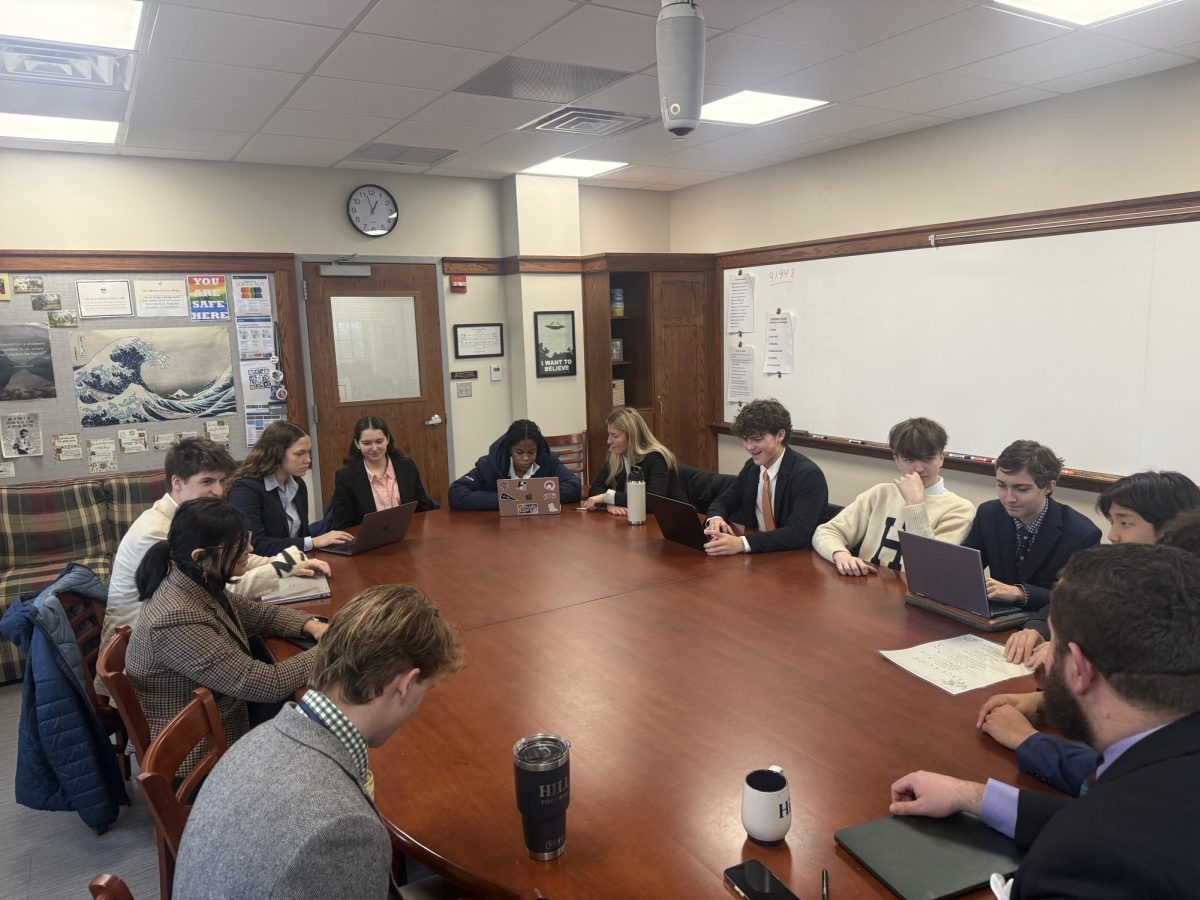Hill long ago was a Christian school. Despite how the institution has changed, some things from our old identity as a school still remain to this day, and it isn’t just chapel service.
Since 1851, the hill school has been built on traditional values. Opening at first as a Christian school, we have grown over the last century and a half to encompass all beliefs, spiritualities and bases for world view/philosophy. As many schools of the time did, the Hill had a Bible class all the way back in 1851. As is expected at a Christian school, the class was a requirement for all students to take. 175 years later, while the school has dropped the religious identity it used to hold, the requirement from it is still present.
The school has many different avenues of religious analysis present nowadays, unlike the sole bible class of the 19th century. Many of these classes are in depth and whole experiences for students to partake in. “The department has a great variety of options, David Shefferman, teacher in the Religious Studies & Philosophy Department, said. “There’s something for everyone, different classes with varied subjects and teaching styles”
Religion is a divisive topic for many students. It’s one of the most sensitive subjects that is typically covered in an educational environment, and due to its sensitivity, it can be hard to fairly portray it in a classroom setting. “It’s a hard thing to learn about” said Jaewan Lee ‘25 “a lot of our preconceived notions are tossed out the window when we go into a barebones class about just what religions are.”.
Hill students have had some sort of religious requirement for multiple centuries, so its not something that was brought upon the school recently .”Our department has existed in one form or another since the founding of the School.” said Reverend Anne Confer Martens “In its earliest iterations, it was just called Bible and served as part of the spiritual formation program of the School.” Like today’s religion classes, Bible was also a mandatory part of the Hill education. It however, was a four-year requirement, rather than a single year like the requirement of today.
Despite the storied place the department’s classes find themselves at Hill, some students think that the requirement is a relic of the past – and shouldn’t be forced onto students. “While I enjoy my world views class and think everyone should take it,” said Kenneth Leary ’25. “I understand why people also think that they shouldn’t be forced to.”.
Some people think the requirement bars truly passionate classrooms from forming. Lee said that “It’s an important set of classes, but by making everyone take them, it just fills classrooms with kids who don’t really care about religion that much. If it was optional, people who really cared would have an option from the get-go to study it.”
Others have had the requirement be a gateway into a deeper interest for them. “I came into worldviews not really caring about religion, and wanting to get this requirement out of the way as early as possible” Nat Diamond ‘’26 shared. “Now I’m in the Religion seminar class and have found something I didn’t know would be interesting”.
Shefferman echoed this sentiment. “Many kids I’ve seen come to get it over with and move on with their days. Some keep that sentiment, and some have dropped it and embraced the classes. I don’t know if everyone is enjoying it, but I can tell that some kids really are.”
Confer-Martens said that the purpose of these courses is to make the students have a “more informed understanding of some aspects of the fundamental questions of human life. “
Dr. Matthew Rinkevich, Head of the Religious Studies and Philosophy department expanded on the intended purpose of the class, saying that the point of the classes was to “explore questions and answers around meaning, around purpose, around ethics, around the relationship that humanity has if any with the transcendent, perceived relationships with the transcendent, what one means or what folks can mean when they transcendence.
“We hope the courses make them better readers, writers, and thinkers, added Confer Martens. “We also hope the courses make them more curious and empathetic.”
In general, Rinkevich said that the study of religion and philosophy is foundational to understanding humanity.
“Religion is the study of the world It’s in the background, but students need to understand it, to really be able to appreciate it and understand the world better than they do now,” Rinkevich said.
























